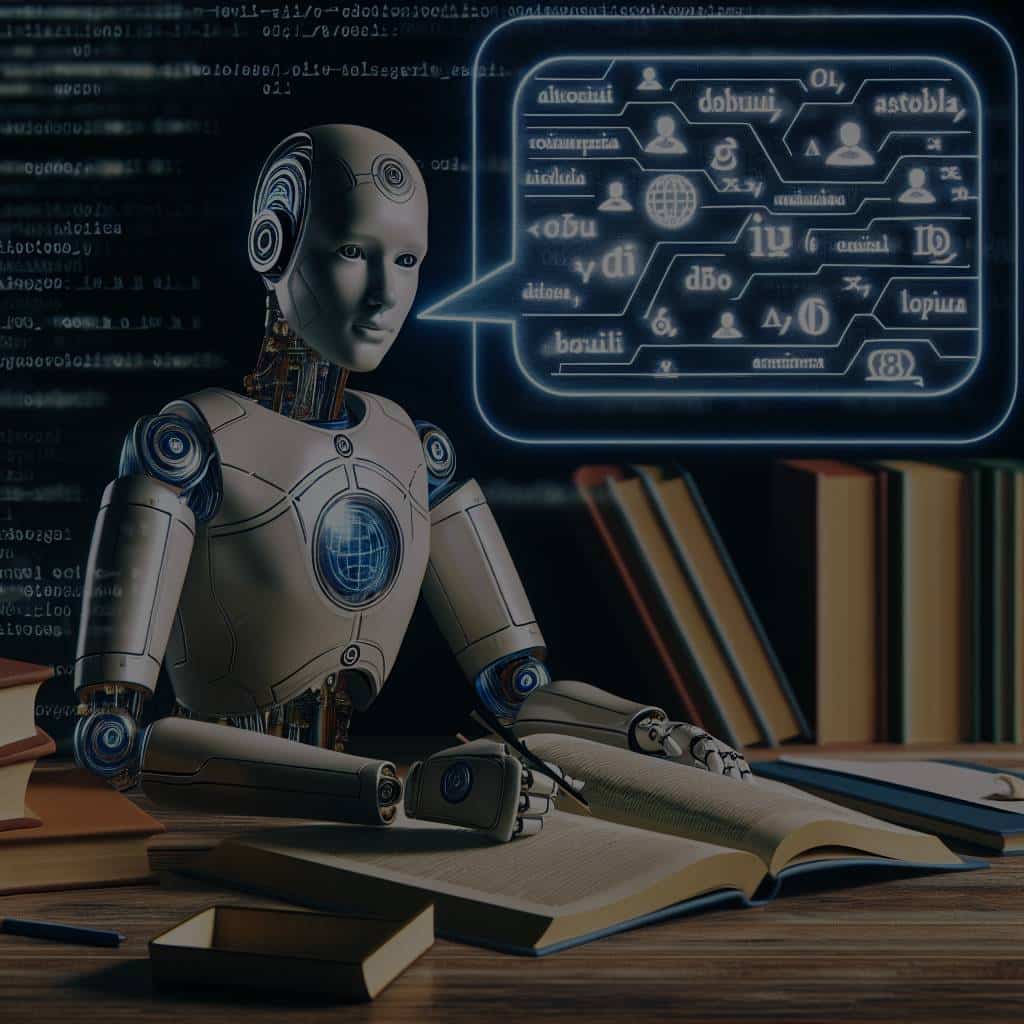In our tech-driven world, the role of AI in education is continually evolving. From personalized learning experiences to real-time feedback, AI has significantly reshaped the way students learn. One area where AI has shown tremendous promise is in language learning. Specifically, it has revolutionized how learners can interact with conversational agents like chatbots to improve their language skills. Understanding this rapidly evolving technological landscape is crucial for scholars and students alike. In this article, we delve into the question: Can AI improve real-time language learning through conversational agents?
The Rise of Conversational Agents in Language Learning
As we strive towards a globally connected society, the importance of language learning cannot be overstated. With the advent of technology, traditional methods are being replaced by more engaging and immersive experiences. A major player in this transformation is the use of conversational agents or chatbots.
Have you seen this : What Innovations Are Emerging in Robot-Assisted Minimally Invasive Surgery?
Conversational agents are AI-powered tools designed to simulate human-like conversations. They are programmed to understand, respond, and engage in a way that mimics a human conversation partner. Chatbots like Google’s Duplex have made significant strides in this domain, showcasing the potential for AI to create human-like interactions.
In the context of language learning, these conversational agents pose a unique opportunity. For English as a Foreign Language (EFL) students, chatbots supply a platform for real-time practice without the fear of judgement. It provides an accessible and convenient way to improve conversational skills, often a challenging aspect for many learners.
Topic to read : How Are AI-Generated Synthetic Media Changing the Landscape of Digital Content?
The Role of Data in AI Language Learning
The power of conversational agents and chatbots in language learning lies in data. With every interaction, these tools gather valuable data about the learner’s progress, including their strengths, weaknesses, and areas of improvement. This data-driven approach offers a new dimension to language learning, fostering a personalized learning experience.
AI is excellent at recognizing patterns, and when it comes to language learning, this ability is invaluable. For instance, an AI chatbot can analyze the frequency of specific grammar errors, identify common vocabulary words that the learner struggles with, or gauge the learner’s comfort level with different language structures.
This real-time feedback allows the learner to correct their mistakes and reinforce their learning immediately. The ‘doi’ or ‘point of need’ learning approach, where learners receive feedback and instruction when they need it the most, is a valuable tool in boosting language acquisition.
The Impact of AI on Learners and Teachers
The benefits of AI in language learning are not limited to learners alone. Teachers and scholars also stand to gain immensely from this technology. The data gathered by AI chatbots can provide valuable insights into teaching methodologies, learner engagement, and curriculum design.
For instance, teachers can use the data to identify learning patterns and tailor their teaching strategies accordingly. They can gain insights into areas where students typically struggle, and provide targeted support to help them overcome these challenges.
For scholars, the data can provide a deeper understanding of the learning process and the effectiveness of different teaching methodologies. It can generate empirical evidence to support educational theories and contribute to the larger discourse on education and technology.
The Future of AI in Language Learning
The future of AI in language learning is promising. As technology evolves, so does the sophistication of conversational agents. Future chatbots will likely have improved capabilities to understand human speech, emotions, and cultural nuances.
These advanced agents will not just mimic human conversation but will be able to engage in meaningful and contextually appropriate dialogues. This level of interactivity will not only enhance the language learning experience but also foster cultural understanding and empathy among learners.
Despite the numerous benefits, it is also important to consider possible challenges. Issues such as data privacy, the digital divide, and the potential for AI to replace human teachers are valid concerns that need to be addressed as we move forward.
In conclusion, while AI and conversational agents cannot replace the rich and nuanced interactions that occur in a traditional language classroom, they can certainly augment the learning experience. By providing real-time, personalized feedback and facilitating engaging, low-risk practice opportunities, AI has the potential to significantly enhance language learning. The future of language education could very well lie in the fusion of human expertise and technological innovation.
Conclusion
In conclusion, AI has immense potential to revolutionize language learning. Through conversational agents, it can provide learners with valuable real-time practice and feedback, and teachers with useful data to enhance teaching strategies. As technology continues to evolve, the scope and capabilities of AI in language learning will only expand, opening doors for innovative and effective learning experiences. With careful consideration of potential challenges, AI may well be the game-changer in the future of language education.
Enhancing Language Acquisition through AI
In the realm of language learning, AI has shown immense potential in enhancing language acquisition. Conversational agents, powered by AI, facilitate language practice in real time, thereby allowing learners to use their language skills in a simulated conversational environment.
AI-powered chatbots such as Google’s Duplex are designed to mimic human-like conversations, which can significantly boost learners’ conversational skills. These chatbots provide a non-judgmental platform for learners to make mistakes and learn from them, thereby enhancing their language proficiency.
AI in language learning is not confined to practice alone; it also plays a critical role in providing real-time feedback. For instance, if a learner makes a grammatical error, the AI chatbot can instantly correct them, enabling the learner to learn from their mistakes promptly.
Moreover, with AI’s capability to recognize patterns, it can analyze a learner’s language usage and identify areas of weakness. For instance, if a learner frequently misuses a particular grammar rule, the AI can detect this pattern and provide targeted feedback to help the learner improve.
Importantly, AI’s role in language learning extends beyond the learner. Teachers can leverage the data collected by AI to tailor their teaching strategies, thereby enhancing the effectiveness of their instruction. For instance, if the data reveals that learners commonly struggle with a specific language concept, teachers can provide additional instruction and practice opportunities to help learners master that concept.
Navigating Potential Challenges in AI Language Learning
While the potential of AI in language learning is immense, it is crucial to navigate potential challenges to maximize its benefits. Data privacy is a significant concern in the age of AI. It is imperative to ensure that the data collected by AI chatbots is secure and used ethically.
The digital divide is another potential challenge. While AI can enhance language learning, its benefits may not be accessible to all learners, particularly those in under-resourced settings who may not have access to the necessary technology.
Furthermore, while AI can significantly enhance language learning, it cannot replace human teachers. The human touch in teaching is invaluable and irreplaceable. Teachers bring a depth of understanding, empathy, and context to the learning process that AI cannot replicate.
Despite these challenges, the future of AI in language learning is promising. With advances in technology, the capabilities of AI in language learning are likely to expand, offering innovative and effective learning experiences.
Conclusion
In sum, AI offers enormous potential in enhancing language learning. Through real-time practice and feedback, conversational agents can significantly improve learners’ language skills. The data collected by AI can provide valuable insights for teachers to tailor their teaching strategies, thereby enhancing learning outcomes.
While potential challenges such as data privacy, the digital divide, and the irreplaceable role of human teachers need careful navigation, the future of AI in language learning is promising. With continued advancements in technology, AI could indeed be a game-changer in the future of language education. As we look to the future, the fusion of human expertise and technological innovation may well redefine the landscape of language learning.











